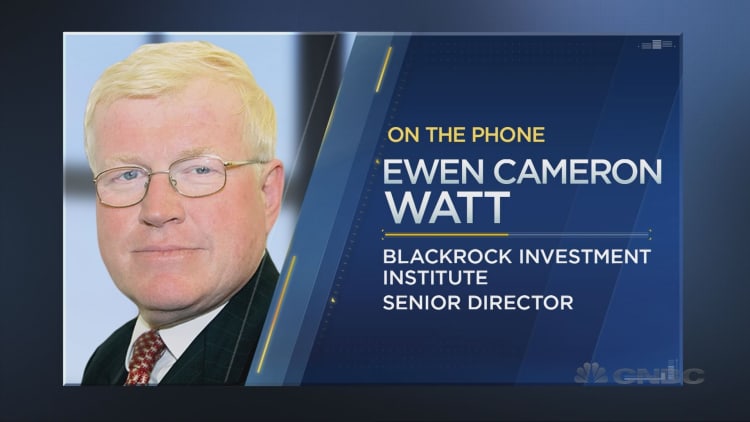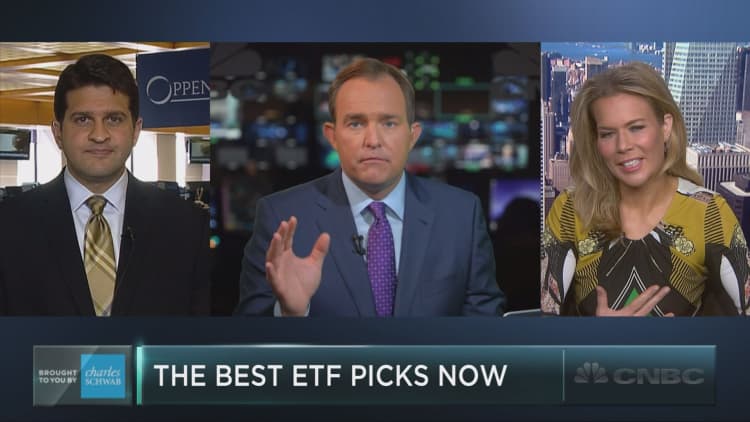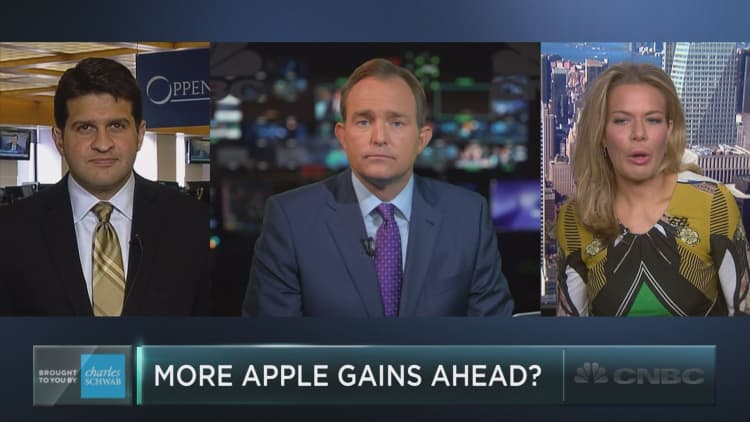


Investors need to start thinking about how climate change will impact their portfolios, according to a new report from BlackRock, which goes on to suggest several specific methods for investing around global warming.
"We believe all investors should incorporate climate change awareness into their investment process," the report concludes.
Tuesday on CNBC's "Trading Nation," Senior Director of the BlackRock Investment Institute Ewen Cameron Watt, a co-author of the report, explained that "there are a number of trains coming down the track — physical risk, technology change, regulatory risk — which have the power to really impact portfolios."
BlackRock, the world's largest asset manager, acknowledges that the fact the world is getting warmer has become a point of contention. Nonetheless, 2015 was the hottest year on record (going back to 1880), besting prior record-holder 2014; 2016 is set to be hotter still. This has increased sea levels, which in turn have increased the number and intensity of coastal flooding events. And the scientific consensus is that human activity has played a large part in spurring these devastating changes.
In terms of the specific physical effects of climate change, BlackRock explains that rising temperatures and greater instances of devastating weather events create salient economic risks, particularly to "coastal real estate, agriculture and companies with supply chains in geographically vulnerable areas," but adds that these effects are "hard to model" and thus difficult to invest around.
A better way of integrating climate change into portfolio decisions is to invest in companies developing renewable power and other advances that reduce carbon emissions. On the fixed income side, bonds that fund climate-friendly projects ("green bonds") are growing in popularity, although BlackRock says that the market needs to find ways to grow.
And while it's nice to focus on the positive side, Watt acknowledged Thursday that "one of the keys to successful investing has always been to avoid the losers."
As regulations potentially aim to quell climate-changing human activities, and new technologies disrupt high-carbon-emitting companies, "the losers are pretty clearly clustered in the fossil fuel space," Watt added.
"We see climate-proofing portfolios as a key consideration for all asset owners," the report states.
Interestingly, BlackRock found that one can reduce a portfolio's "carbon footprint" by 70 percent while keeping the tracking error to the MSCI World Index benchmark within 0.3 percent. This suggests that avoiding most high carbon emitters can be done without fundamentally changing a portfolio's risk-reward characteristics.
Regulation, incidentally, is where the short-term and the long-term meet when it comes to climate changes. This makes sense, given that well-designed regulations bring a company's short-term incentives in line with society's long-term goals.
"Most people think of climate change as a long-term issue, but it's nearer at hand, and it's important to everybody, whether or not you believe in the science," Watt said.
Whether one ought to have his money managed by someone who does not believe in science is not a topic that Watt addressed.






